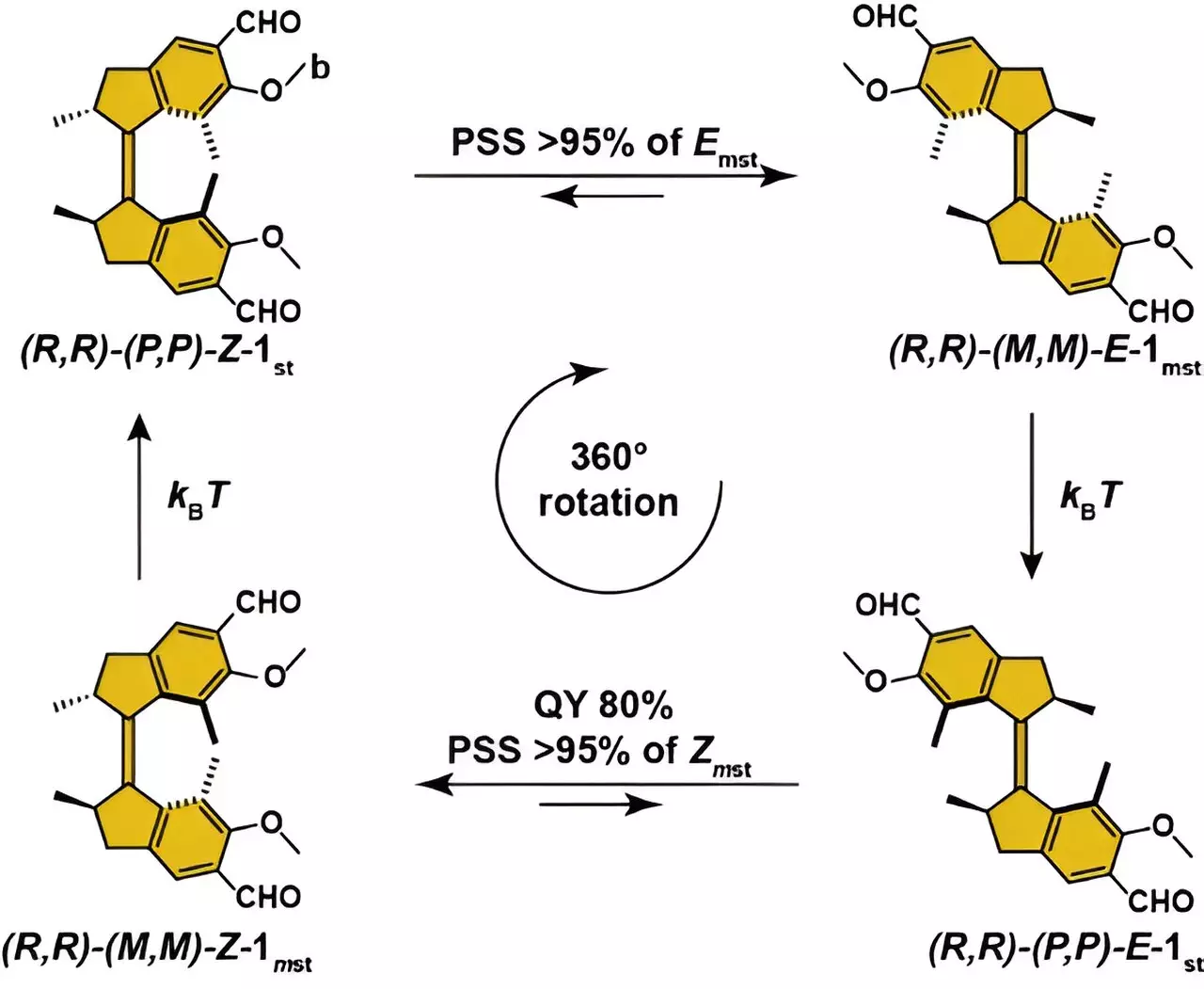

The development of light-driven molecular motors has been a fascinating journey that began at the University of Groningen almost 25 years ago. The breakthrough discovery led to Professor Ben Feringa receiving the Nobel Prize for Chemistry in 2016. However, despite this achievement, the practical application of these motors faced significant challenges. A recent publication in Nature Chemistry by the Feringa lab, with first author Jinyu Sheng, sheds light on a series of enhancements that have brought real-world applications closer to reality.
One of the main obstacles in harnessing the full potential of light-driven molecular motors has been their poor efficiency. Only a mere 2% of the absorbed photons actually drive the rotary movement of the motor molecule. This inefficiency not only hinders practical applications but also limits the control over the motion of the motor. Sheng, during his Ph.D. studies, undertook the challenge of increasing the efficiency of the motor molecule. His innovative approach involved adding an aldehyde functional group to the motor molecule, a decision that unexpectedly led to a significant improvement in efficiency. Through collaboration with the Molecular Photonics group at the University of Amsterdam, advanced laser spectroscopy and quantum chemical calculations were employed to gain a deeper understanding of the electronic decay pathways, unraveling the intricate workings of the molecular motor.
The introduction of the aldehyde group not only enhanced the efficiency of the motor but also provided better control over its rotary movement. The motor, which previously underwent rotation in four discrete steps, now could be synchronized, allowing precise control at each stage of the rotation cycle. This newfound capability opens up a myriad of possibilities for practical applications. For instance, the motors could be utilized as a chiral dopant in liquid crystals, creating a spectrum of reflection colors based on different positions. Additionally, the modification led to a shift in the absorption of light towards longer wavelengths. This alteration has significant implications for medical applications and materials science, as longer wavelengths can penetrate deeper into living tissue or bulk materials, enhancing the overall efficiency of the motors.
The advancements made by Sheng and his colleagues have paved the way for numerous potential applications of these enhanced molecular motors. Collaborations with fellow researchers are underway to explore various possibilities in fields such as medical research and materials science. The future looks promising, with the anticipation of more papers to be published on this groundbreaking topic. Nevertheless, there still remains a challenge for the Feringa lab – while the molecular motor has become more efficient, the underlying reasons for this enhancement are not yet fully understood. The quest for unraveling the mysteries of these molecular motors continues, promising a new era of innovation and advancement in the realm of nanotechnology.
Through meticulous research and groundbreaking discoveries, the era of light-driven molecular motors is witnessing a shift towards practical applications and enhanced efficiency. The journey that began decades ago has now entered a new phase of innovation, offering a glimpse into a future where molecular motors play a crucial role in various scientific and technological advancements.
In an era where environmental consciousness is paramount, the maritime industry has long been scrutinized…
Radionuclides, often relegated to discussions surrounding nuclear energy and radioactive waste, have far-ranging implications for…
Landslides have long been a concern in areas like California, where the unique geography and…
In the vastness of our galaxy, among countless stars, lies a fascinating phenomenon known as…
This week marks a monumental milestone in astronomy as the Hubble Space Telescope celebrates its…
The enigma of dark matter has captivated the scientific community for decades. Although it constitutes…
This website uses cookies.